myHIN Blog

June 11, 2013
The Taboo Topic in Student Communities
I found My Health Impact Network through a twitter chat. As an organization focused on targeting young people through social media, I believe that I serve as a case study for its effectiveness in reaching target audiences. I am an undergraduate at Yale and a complete public health nerd. Although I mainly become involved in public health efforts by serving as a volunteer, I also use twitter and other social media as a way of connecting with public health professionals and catching up on new health programs and research. While participating on an online twitter chat about mental health awareness month I interacted with Dr. Payton and started to learn more about this project and its aims. As a young black women interested in health and more specifically women’s health, My Health Impact Network’s mission and goals really resonate with me.
Although young adults are very aware of HIV and other STD/STIs, it still is a very taboo topic in student communities. In my university of around 5000+ people, I do not know a single student living with HIV. This is not because there are not students living with the illness, but because it is still something that cannot be talked about in social circles. Many students received their main knowledge of STD/STIs through high school classes. Abstinence only focused or not, sexual education programs often use gruesome images and dire statistics of STD/STI cases which manifests in fear and stigma. Although the intention through these strategies is to encourage young adults to use condoms as protection, it instead creates silence and denial of STD/STIs. This stigma prevents young adults from talking about their diseases and the fear prevents people from regularly getting tested or having discussions with sexual partners.
Unfortunately, the stigma and fear are often carried to college and is not readdressed by university health programs. My freshman orientation focused mainly on acclimating to a new environment with alcohol and parties, which was entirely necessary and helpful, and a large emphasis on access to condoms. I am fortunate that my school has made access to condoms very easy by handing them out freely and putting them in the entryways of our dorms. It is important to recognize that not all schools provide these measures as demonstrated by the ban on free condoms at Boston College.
However, emphasis on condom use alone is not sufficient. Condoms are indeed the only way to minimize STD/STI contraction from a partner with unknown health status but condoms are sometimes not used or break. In these cases, sexual education mainly discusses the risk of pregnancy, but colleges must begin to openly talk about STD/STIs without stigma or shame. There has been significant progress in making sexual education much more comprehensive such as Get Yourself Tested month in April (http://www.itsyoursexlife.com/), and an emphasis on consent in sexual interactions, but there must be further and more long-term dialogue on removing the stigma from STD/STI contraction. In this education, I imagine more discussion about the statistics of STD/STI contraction and recovery on campus and clear information on the protocol for testing and treatment. In addition, health centers must be more accessible for immediate testing at the need of the student. These efforts must not follow the scare tactics of gruesome images and numbers of STD/STI deaths but rather an emphasis on what the resources actually provide.
How can we continue to remove the stigma and fear from STD/STIs while still focusing on the importance of protection? How can we foster more discussion of STD/STIs and personal experiences in student circles? Please continue the discussion in the comments.
Follow @myhealthimpact on Twitter.
Seyi Adeyinka is a student at Yale University. Seyi is interested in the barriers to health care access and how they manifest themselves in family planning and reproductive health at the local and international level. She is a Global Youth Advocacy Fellow for Planned Parenthood Federation of America and a Campus Action intern at her regional Planned Parenthood of Southern New England. She has also served as a Health Disparities Research Fellow at the University of Connecticut Health Center. At Yale, Seyi is a member of the Student Global Health and AIDS Coalition, Yale African Students Association, the Black Student Alliance, and is a Consent and Communication Educator.
Follow us at tumblr.myhealthimpactnetwork.org (Tumblr)
Follow us on Twitter @myhealthimpact
Share
Comments
comments powered by DisqusIn Partnership with: Poole College of Management, College of Humanities and Social Sciences, National Science Foundation, Penn State
Take Action, Get Tested: Find Your Local Testing Center Why Get Tested?
